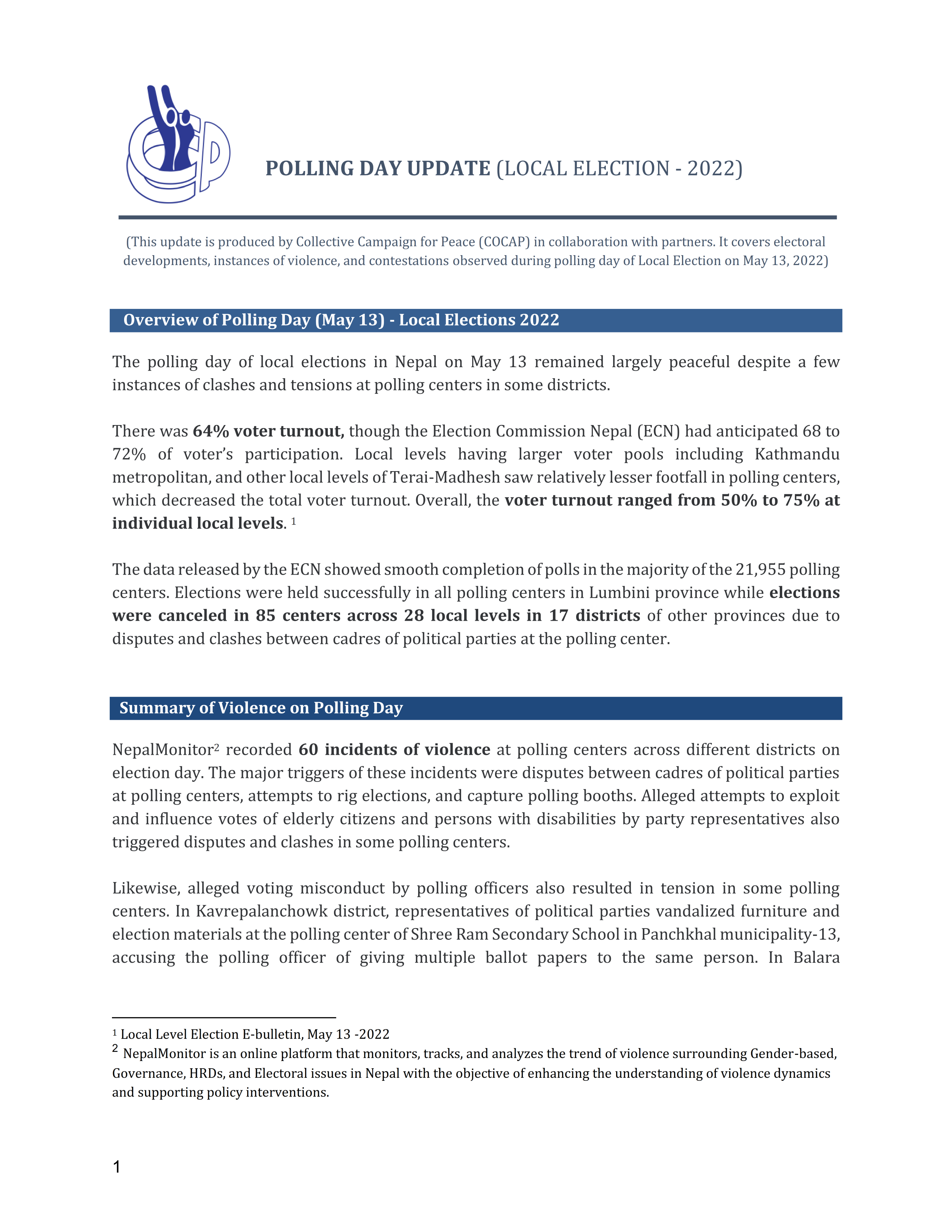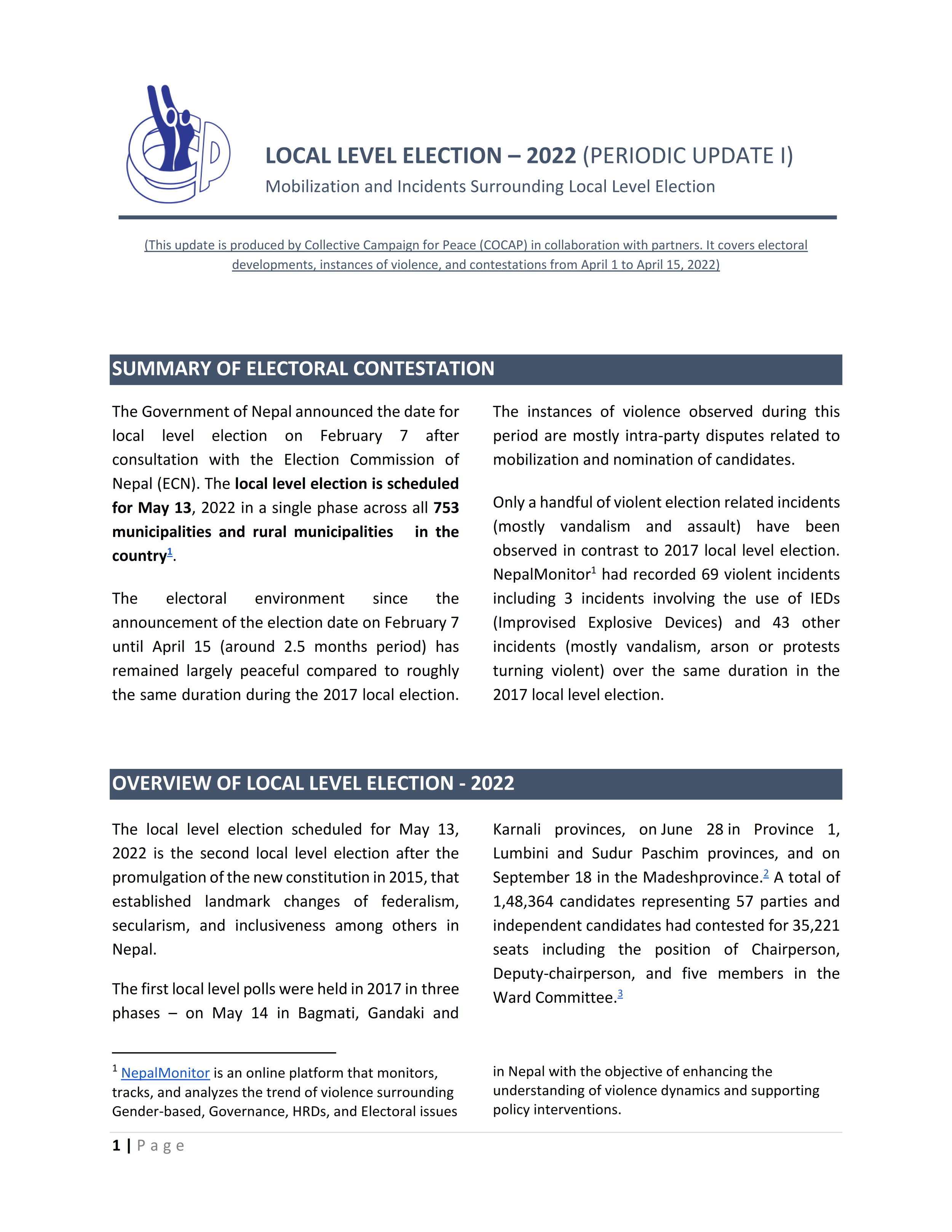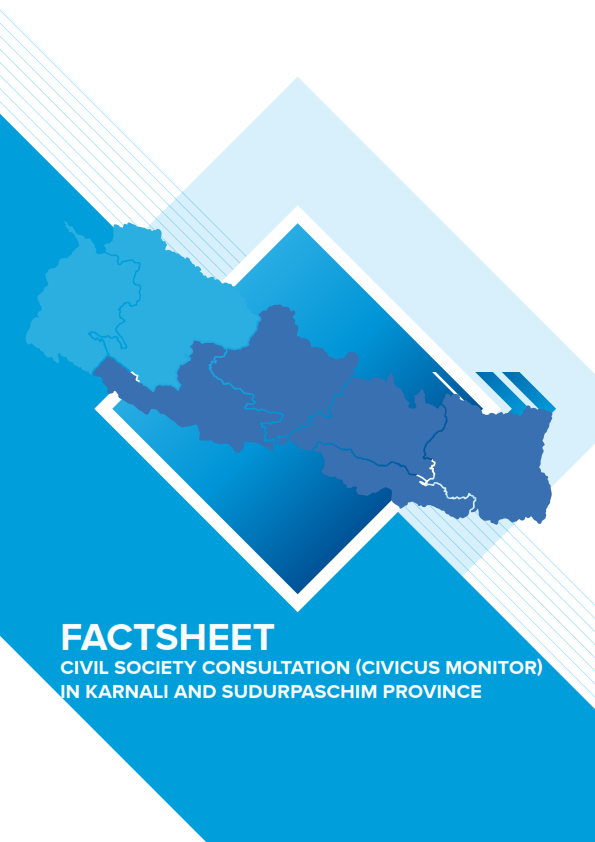Incident Reports
APF gets discretionary power to open fire
2015-07-07
The newly introduced APF Regulation 2015 has guaranteed government protection to APF officials while carrying out their professional duties.
The APF regulation that was published in the Nepal Gazette issued on Monday has a provision that authorizes APF officials to use force as a last resort.
Under chapter-8 of the new APF Regulation, the roles, duties, and rights of APF has been described thus: "APF personnel can use optimum force to remove obstructions while carrying out their duties." The provision also states that one cannot file any complaints against APF personnel if anyone dies or is injured in the course of such action.
The APF Regulation-2060 (sixth amendment) had not authorized APF to use force as a last resort under any circumstances.
The Local Self-Governance Act allows the Nepal Police to use force only after exhausting other options -issuing a warning, firing tear gas shells and using water cannons, baton charging, firing in the air, and shooting below the knees with permission from the chief district officer.
APF personnel have hailed the provision saying this would help them discharge their duties efficiently. An APF official requesting anonymity said, "The provision has guaranteed us legal protection while carrying out our duties."
APF is tasked with managing armed insurgency, separatist activities, terrorist activities, riots, and protecting VIPs and vital installations. APF personnel are also deployed in rescue missions and for border security.
Despite the directive of the state affairs committee of parliament, the new regulation also allows APF to issue arrest warrants. APF has to hand over the arrested to Nepal Police for further investigation.
The APF officials also said that the new provision would not encroach on the role of Nepal Police but would rather be helpful to the latter in the investigation of specific crimes.
The dispute over giving APF the power to issue an arrest warrant had soured its relations with the Nepal Police. The Nepal Police had been arguing that the paramilitary force should not be given the authority as such a provision is not in line with the criminal justice system and international humanitarian laws.
Meanwhile, the regulation has also deprived APF personnel of applying for [US] Diversity Visa, permanent residence, Green card, and any other permits for permanent residency abroad. If any person has acquired any such permit, he or she should inform the APF headquarters within 30 days after the regulation came into effect. He or she can be demoted or made ineligible for any government jobs in the future if found to have applied for any such permits to stay abroad.
The new APF regulation has also introduced special incentives for APF personnel engaged in disaster management and other challenging tasks. APF personnel can file complaints if he or she is not satisfied with the decisions made by the APF authorities. The regulation has also guaranteed special incentives to the family of personnel killed, disabled in the course of carrying out their duties, and arranged for special health and education packages for their children.
National/Online Media
Related Reports
Governance / Kathmandu
Medical education concern committee protest by banging plates and whistling
September 08, 2023
Governance / Darchula
Workers padlock school citing non-receipt of wages for more than a year
Sudurpashchim, Darchula, Naugad
August 29, 2023
Governance / Sunsari
Prohibitory order issued in Dharan, tightening at entry points
Province 1, Sunsari, Dharan
August 25, 2023
Governance / Morang
Students of Eastern College in Biratnagar on protest
Province 1, Morang, Biratnagar
August 23, 2023
Related Trend Analysis
Analysis

THE NEPAL PEACE MONITOR ANNUAL REVIEW: 2020
October 25, 2021
Human Trafficking / LGBT+ Rights / GBV / Political / Children’s Rights / Senior Citizens’ Rights / HRD Issues / Human Rights / Interpersonal Violence / Governance / Covid-19 / Civic-Space / PwD

_001.png)




